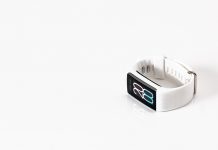
My husband had cancer surgery at Sloan Kettering Hospital. An 8-pound tumor (sarcoma) and 3/4 of his liver were removed at that time. He is doing reasonably well considering cancer seriously affected his kidneys. He has MC Disease and takes prednisone and Demadex to help this. He has a big problem with fluid retention and is on a 2-gram sodium diet.
His cholesterol is over 300 and he only retains 20 to 30% of his albumin and protein from the things he eats. He is 54 years old and otherwise in good health, at 185 pounds. He was in the hospital for 7 weeks but had only one very short visit with a dietitian during all that time.
He will eat anything but does not have a specific diet to follow. His energy level is low and I am worried about the cholesterol, but the doctor does not seem to be. Thank you for advising us.
I agree with his doctor. Forget your husband’s cholesterol!
He needs to eat protein to refuel his albumin which has a half-life of about 3 weeks. (In 3 weeks, half a person’s albumin in their blood would need to be replaced by their body.) Your husband’s need to replenish his albumin is accelerated because his remaining 1/4 liver is trying to do the work of a whole liver and you indicated he had kidney problems. Albumin is returned to the blood by the liver and is retained in the blood by the kidneys. When the liver fails (cirrhosis) or in his case is surgically removed, not all the albumin is returned to the blood and ends up floating around the abdomen. When the kidneys are not working, they leak proteins into the urine. Also, his fluid problem is related to his low albumin because protein is a large molecule and exerts a big influence on the fluid being retained in the blood. If blood albumin levels are low, fluid leaks out of the circulatory system into surround tissue. He is experiencing a chain reaction, as a result, the necessary removal of almost all his liver.
The sodium restriction is probably tied to prednisone medication. Prednisone causes fluid retention mostly in the upper torso and face.
He needs to eat and maintain his immunity. Unfortunately, when people get cancer, they think “Now I am going to eat healthy” and start eating only low fat or low-calorie foods. Quite the opposite is true in that they need sufficient calories to maintain their weight and immune system which is needed to fight cancer. Fat is a good carrier of calories, but when the liver is involved, sometimes fat is kept at healthy amounts of 30% of total calories.
Your husband has been through a lot and of course, his energy level is low. He needs rest while his body recovers. His liver can grow back and hopefully he is on the road to recovery.
How was his kidney’s affected? Demadex is a diuretic which should help handle some of the fluid retention along with the sodium restricted nutrition therapy.
Considering his complex nutritional needs, I would highly recommend that he make an appointment to see a dietitian at Sloan Kettering (one of the best cancer centers in the world). Unfortunately, patients are discharged more quickly and are sicker when discharged. A dietitian can be called in to see a patient during hospitalization or prior to discharge. Even if your insurance doesn’t cover a dietitian’s services, it will be money well spent in nutritionally guiding you and your husband during recovery as the hospital dietitian could look at your husband’s medical chart which I cannot. He may need liquid meal supplements between meals to keep up with his nutrient and calorie needs.
Sloan Kettering probably has a nutritional support service (team of doctors, nurses, and dietitians) that can assess your husband’s nutritional status with some physical measurements and periodic blood tests. I was on such a nutritional support service when I worked in a regional hospital. It’s impressive what can be done with food, liquid supplements, tube feedings and even IVs short term to provide adequate nutrition and prevent weight loss during recovery.


